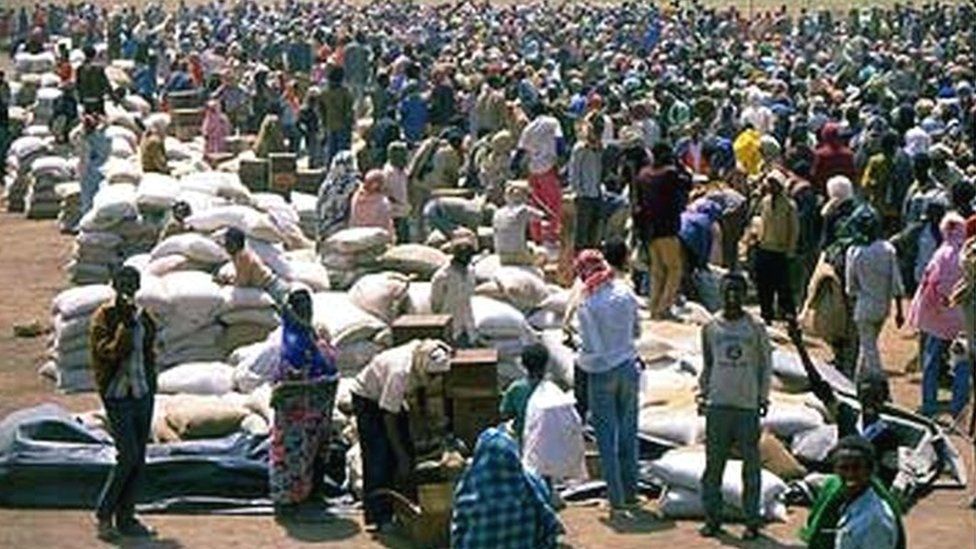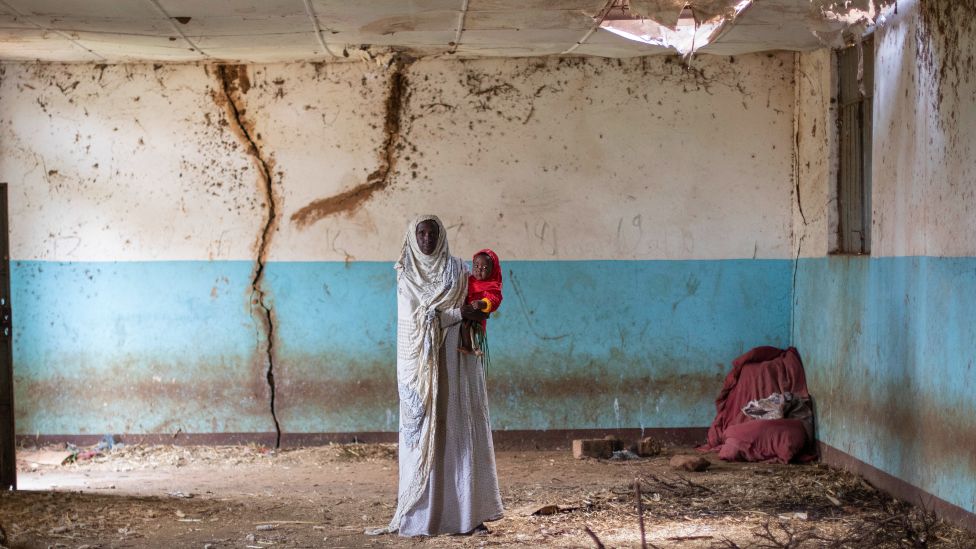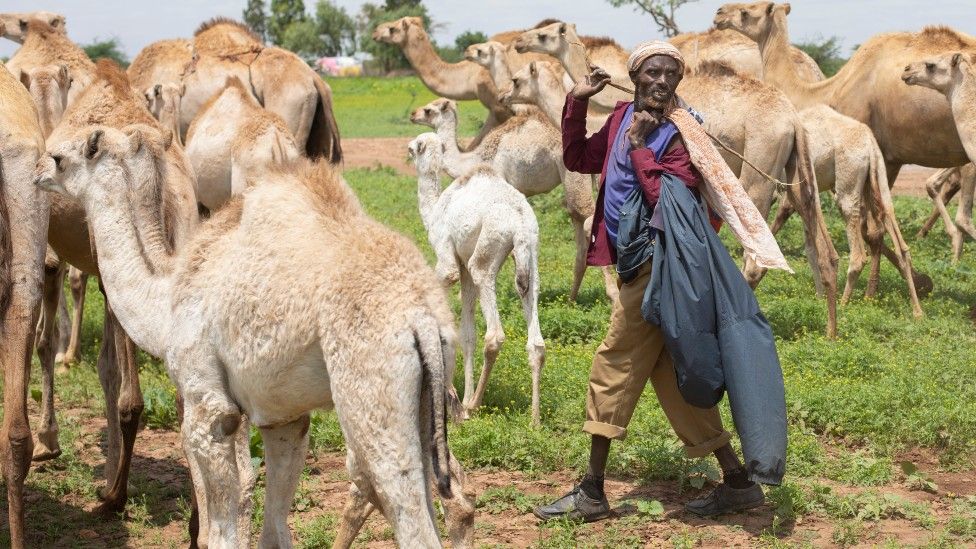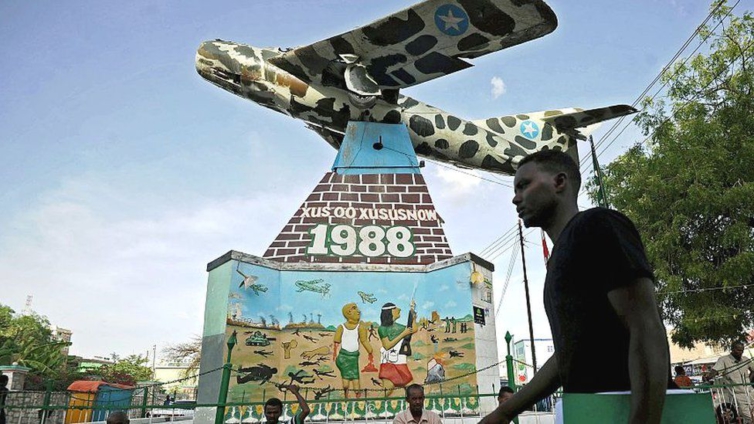In our series of letters from African journalists, Ismail Einashe considers the importance of memory for those who lose everything in the chaos of war.
Christmas Day, New Year's Day and Valentine's Day are dates you'll find many Somalis celebrating their birthdays. This is not as surprising as it sounds, it is just that very few Somalis know when exactly they were born and so opt for more memorable dates.
Somalia has an oral culture - most Somalis are more likely to be able to tell you the names of the last 20 generations of their forefathers rather than the details of their birth date.
And Somali only became a written language in 1972 when official records began to be kept - but very little remains of these archives because the country has been torn apart by civil war.
'Dresden of Africa'
Actually, next year marks three decades since the Somali state collapsed leaving many families like mine without their important documents or photos.
We were forced to flee the escalating violence which began a few years earlier in 1988 with aerial bombardments and ground attacks by the regime of then-President Siad Barre.
Hargeisa, where I was born, become known as the "Dresden of Africa" as the city was totally levelled in the conflict.
I spent my formative years living in what was then the world's largest refugee camp - Hartisheik in Ethiopia near the Somali border.

Like many of the many thousands of people who passed through the camp, which eventually closed in 2004, I was stripped of all records of my life before the war with no birth certificate or passport - relying only on ephemeral and fleeting memories.
It was in pursuit of these that I decided decades later to return to Hartisheik to see what remained of the camp that was once my home.
I wanted to try and get a sense of where I had come from - to understand my footing in this world in flux.
'An endless Martian expanse'
On a hot afternoon I took a flight east from Ethiopia's capital, Addis Ababa, to Dire Dawa, the country's second largest city, though it really felt more like a quaint, sleepy town with its beautiful old railway station that is no longer in use except as a home for a family of monkeys.
An old carriage lay outside the grand entrance where a few men slept underneath the wheels, while others sheltered there from the sun chewing khat, drinking tea and smoking cigarettes.
After leaving the refugee camp I had briefly lived in Dire Dawa so I visited my old haunts with interest before heading further east to Hartisheik.
I was more nervous about making that long journey on an old minibus. It was made worse by the regular military checkpoints and the several hours along a rough road from the town of Jijiga towards the Somali border.
I remembered the camp outside Hartisheik town as a dusty, remote and unforgiving place - an endless expanse with a cracked Martian hue.
When people arrived there 30 odd years ago they found horrendous conditions -there was no shelter, water, food or medicine and countless numbers died of hunger, thirst and disease.
But the camp quickly became like a town with a large market where you could buy all manner of things and with places to sit and drink tea.
Often people think refugee camps are only places filled with misery and desperation.
Yet as a child I remember I often had a lot of fun with my friends running around playing with rocks and screaming in giddy excitement at the occasional UN plane that flew above us to deliver much-needed aid.
However, the dust that was engrained in my memory was not to be found on my return - I was dumbfounded to find a green, lush and beautiful landscape thanks to the rainy season.
No headstones for the dead
It felt strange to me that such an alluring place with its ponds, trees, and long grass as far as the eye could see had been so full of people's fears all those years ago.

I felt somewhat disappointed in my memories.
There was nothing to mark the more 600,000 refugees who once lived here at its peak - no headstones for the dead and no official commemoration - the earth had reclaimed it all.
Then I spotted an elderly Ethiopian man, Mohamed, who it turned out had once worked as the caretaker of the camp - a place he remembered as being full of the pain of war.
He now lives with his family in a "bull", a small traditional house and they have cows, goats and farm what little they can.
He told me a few camp buildings were still standing, including what might have been a hospital that a woman called Sahra showed me around with her young granddaughter.

Painted in seemed to be the UN colours of blue and white, there was a stench of decay and goat dung as it was occupied by animals belonging to Sahra's family, who had once lived in Wajale on the Somali-side of the border, but now farmed here.
I thought of all those who must have lost their loved ones inside this building.
Of course many of the younger people I came across, like the young cattle herder Jimale, did not remember the refugees at all.

I also met a group of Somali-speaking nomads following their camels in search of fresh grass and water, who offered me, a tired traveller from London, fresh and pungent camel milk.
As the sky tinted orange I decided to return to Hartisheik town before the sun set - leaving the camp for a second time, this time as a man, but a changed man slightly dazed and confused by the tricks of memory.
It brought to mind another memory - me aged about five finding a small tub of discarded Vicks ointment in the camp - which I naively rubbed all over my face.
Inevitability ended up getting into my eyes and a fountain of tears rolled down my face as I ran dazed and confused across the camp in search of my mother.
Latest Stories
-
Prof. Bokpin believes stabilizing the cedi at GH₵10–12 is the right approach
1 minute -
‘Ghana sprinting has reached crescendo of the world’ – Fuseini hails Saminu’s 100m world-leading run
2 minutes -
They took out E-levy and brought E-levy Pro Max – Alhasan Tampuli reacts to ‘Dumsor Levy’
4 minutes -
Ghana’s neighbour Togo named in Trump’s latest US travel ban proclamation
15 minutes -
BoG Governor announces plans to block leakages in remittances space
28 minutes -
Ghana Premier League: Hearts and Kotoko will learn from Eleven Wonders in five years – CEO
34 minutes -
Dr. Samuel Dotse champions Climate Action and Financial Mobilisation at 69th GEF Council Meeting in Washington, D.C. USA
41 minutes -
Day 2 of Nurses’ strike: Ridge Hospital wards deserted, patients stranded
50 minutes -
Canada-based Rektron Group to acquire major stake in Ghana’s AT Ghana
56 minutes -
Emergency services paralyzed as nurses’ strike grips Ghana’s public hospitals
58 minutes -
MUSIGA and Copyright Office pledge stronger collaboration to tackle music industry challenges
1 hour -
June 3 disaster fuelled by politics and lawlessness – Henry Quartey asserts
1 hour -
Moses Asaga sworn in as PURC Board Chair
1 hour -
NDC has scammed Ghanaians with Dumsor Levy – Ntim Fordjour
1 hour -
Radio Univers’ Dr. Sidick Ahmed set for grand farewell on June 6
1 hour

